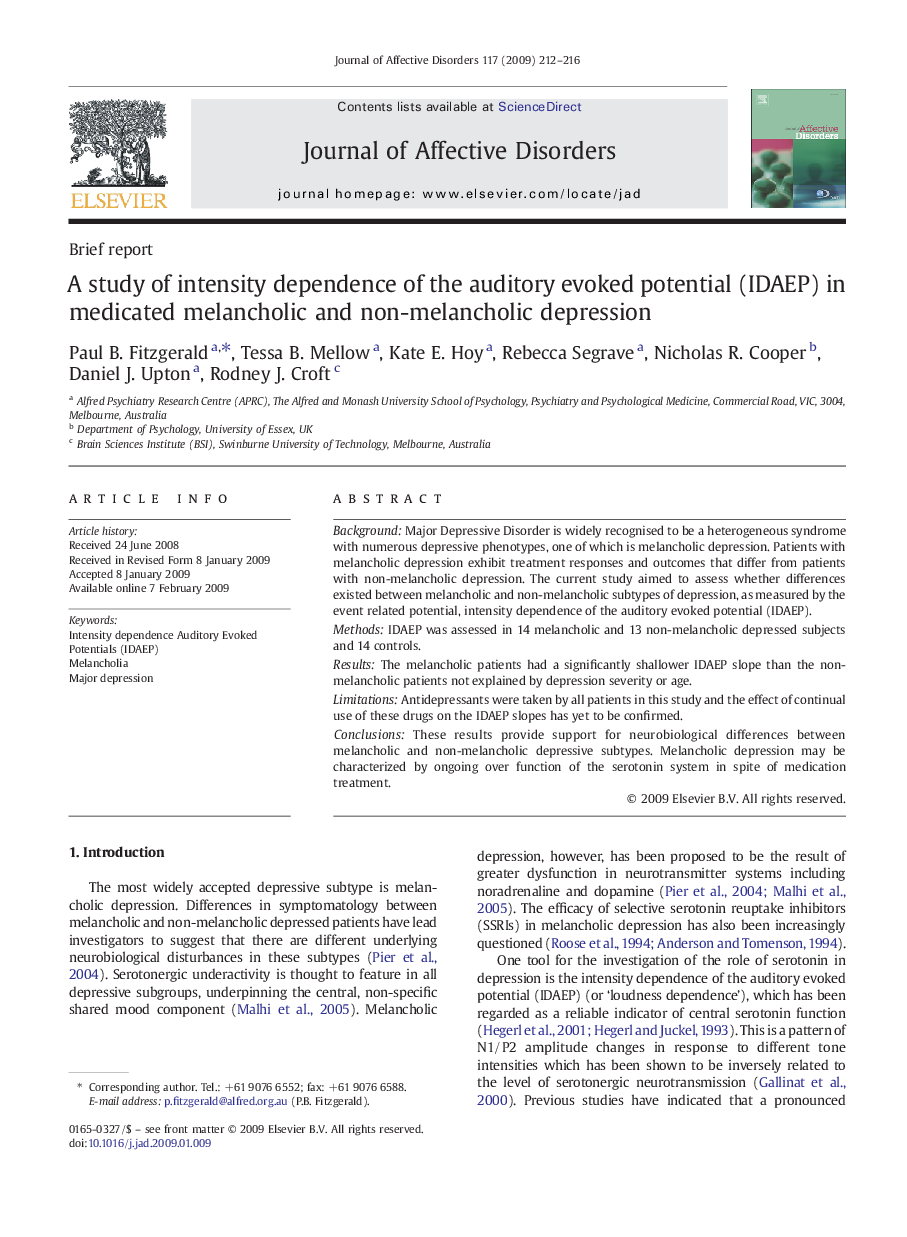| Article ID | Journal | Published Year | Pages | File Type |
|---|---|---|---|---|
| 4187214 | Journal of Affective Disorders | 2009 | 5 Pages |
BackgroundMajor Depressive Disorder is widely recognised to be a heterogeneous syndrome with numerous depressive phenotypes, one of which is melancholic depression. Patients with melancholic depression exhibit treatment responses and outcomes that differ from patients with non-melancholic depression. The current study aimed to assess whether differences existed between melancholic and non-melancholic subtypes of depression, as measured by the event related potential, intensity dependence of the auditory evoked potential (IDAEP).MethodsIDAEP was assessed in 14 melancholic and 13 non-melancholic depressed subjects and 14 controls.ResultsThe melancholic patients had a significantly shallower IDAEP slope than the non-melancholic patients not explained by depression severity or age.LimitationsAntidepressants were taken by all patients in this study and the effect of continual use of these drugs on the IDAEP slopes has yet to be confirmed.ConclusionsThese results provide support for neurobiological differences between melancholic and non-melancholic depressive subtypes. Melancholic depression may be characterized by ongoing over function of the serotonin system in spite of medication treatment.
